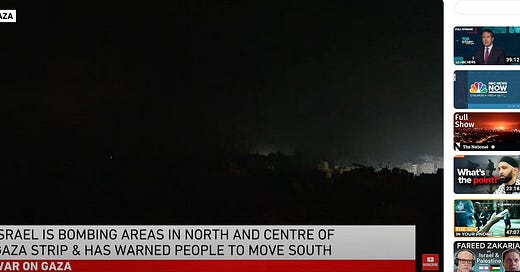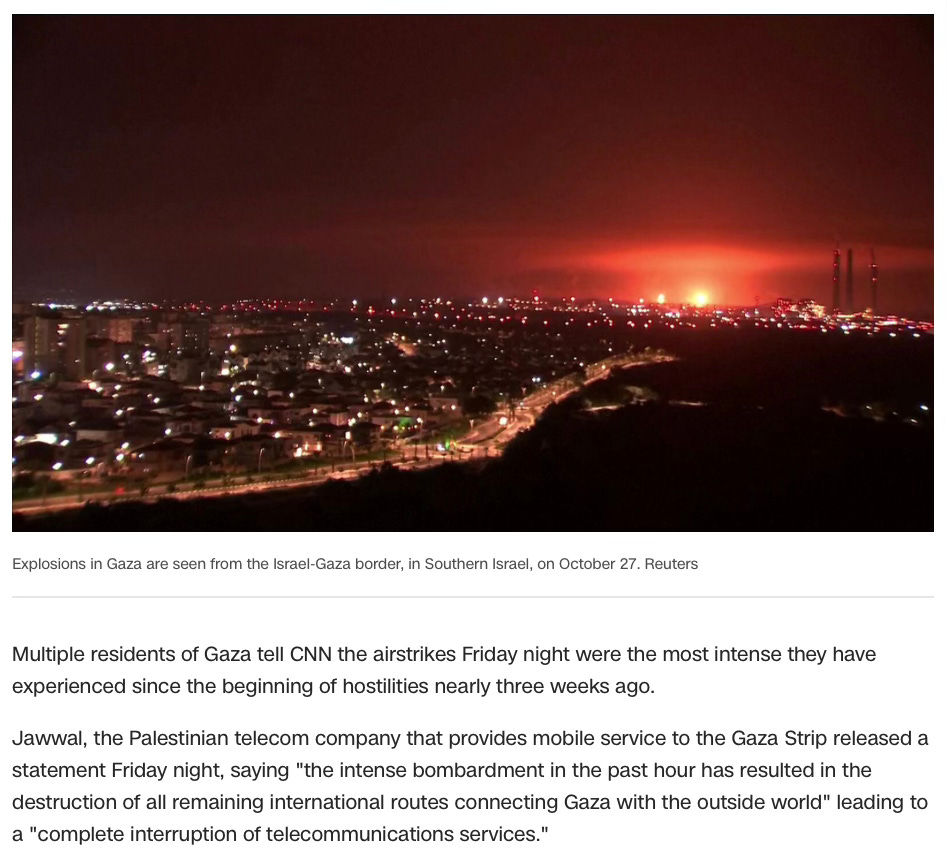In Israel-Palestine, it is now half-past midnight on Day 22 of the Israel-Hamas War.
Events are moving incredibly quickly.
I am watching live video of the Gaza skyline, which is completely dark.
The video is provided by Al Jazeera—funded in whole or in part by the government of Qatar, and one of the few news sources with the ability to broadcast from Gaza.
CNN is broadcasting from the nearby Israeli military exclusion zone, but acknowledges that it has no way of knowing, first hand, what’s happening inside the enclave, Their vantage point shows the well-lit skyline of Ashkelon, an Israeli city just north of the border with Gaza.
Al Jazeera has (for the moment) a satellite link transmitting from inside Gaza. CNN does not. Satellite communication is the only way Gaza can be connected to the outside world, because Israel has disabled all telecommunications links in Gaza. This may be part of the final preparation for a land-based incursion, the scale of which is a matter of speculation by everyone.
Concurrently, the United Nations General Assembly just passed a resolution calling for an immediate cease-fire to allow relief to Gazan civilians who are, by any objective legal standard, being subject to collective punishment by Israeli airstrikes and reported land-based incursions in the northern and eastern areas of the Strip.
The UN Security Council is set to consider a similar resolution later this evening, with the United States and most of its European allies insisting on a ‘humanitarian truce’ rather than a cease-fire.
A ‘humanitarian truce’ does not commit either party to suspending its military operations. A cease-fire is a (marginally) more formal agreement, the violation of which is arguably adjudicable under international law. But then, most all provisions of international humanitarian law and laws of war are arguable and honored largely in the breach.
As events unfold at UN headquarters in New York, the Israeli military has intensified its aerial attacks on Gaza, in apparent defiance of the international community as its wishes are, and for decades have been, expressed by the UN General Assembly. The Israeli government has vaguely acknowledged that it has begun the long-anticipated escalation to a new phase of the war, but declines to give details.
Tonight, the increased shelling, heightened uncertainty and inability to connect with family, friends, and the outside world—the darkness—has intensified the collective sense of terror felt by Gazans.
How can we not all, as collective humanity, empathize with that terror?






